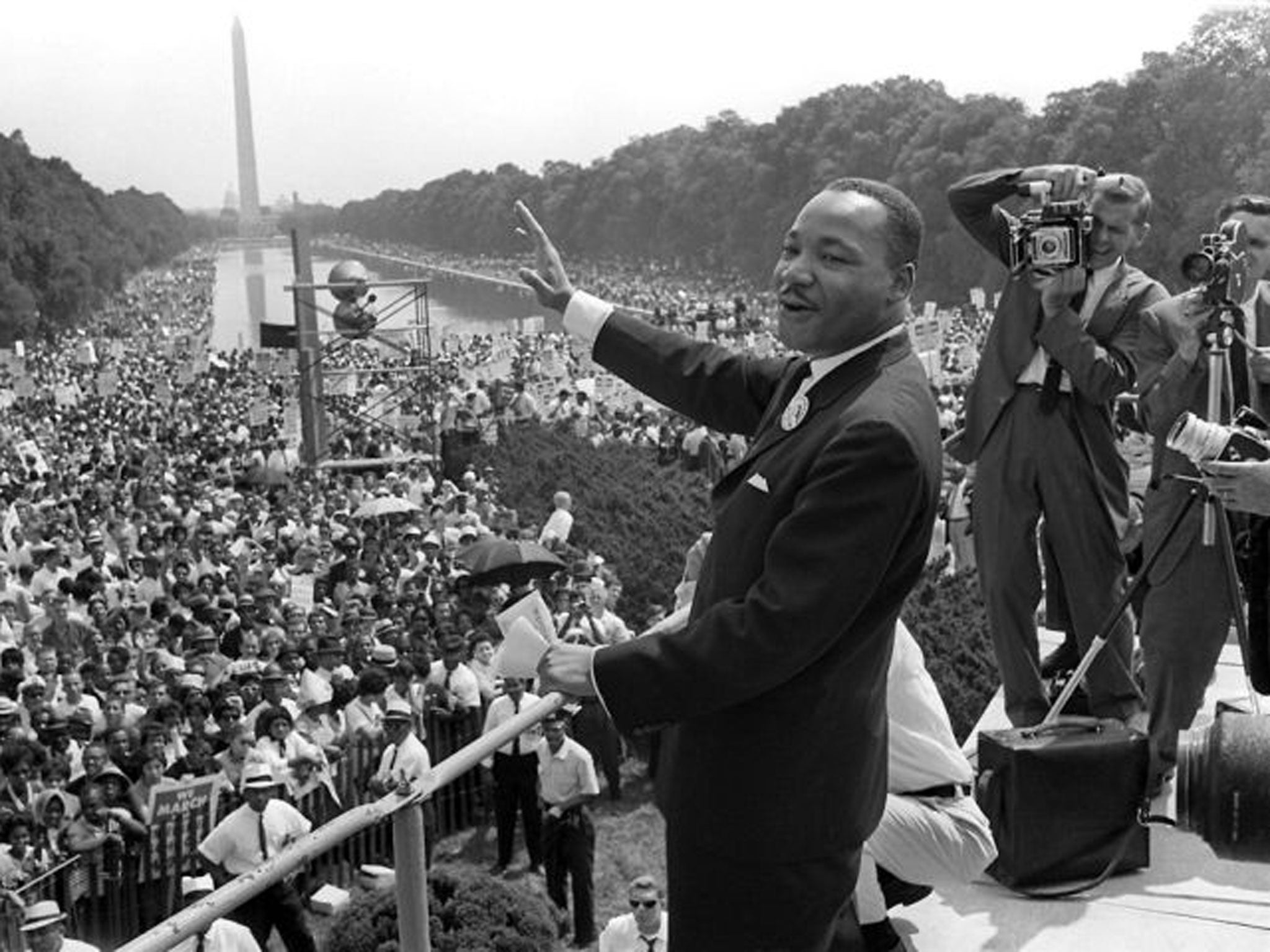Secret cold war files reveal US spied on Muhammad Ali and Martin Luther King Jr
Declassified documents reveal National Security Agency put anti-war critics on a watch list

Your support helps us to tell the story
From reproductive rights to climate change to Big Tech, The Independent is on the ground when the story is developing. Whether it's investigating the financials of Elon Musk's pro-Trump PAC or producing our latest documentary, 'The A Word', which shines a light on the American women fighting for reproductive rights, we know how important it is to parse out the facts from the messaging.
At such a critical moment in US history, we need reporters on the ground. Your donation allows us to keep sending journalists to speak to both sides of the story.
The Independent is trusted by Americans across the entire political spectrum. And unlike many other quality news outlets, we choose not to lock Americans out of our reporting and analysis with paywalls. We believe quality journalism should be available to everyone, paid for by those who can afford it.
Your support makes all the difference.The United States has another secret eavesdropping scandal on its hands, but this time it goes back to the administrations of Lyndon Johnson and Richard Nixon, a time, it now seems, when paranoia about foreign governments allegedly stoking the anti-Vietnam War movement was rife.
Historical archives reluctantly released to researchers at George Washington University show that under a programme dubbed ‘Minaret’, the National Security Agency, NSA, was monitoring the overseas phone calls and cables of several figures of note still now, including heavyweight boxing champion Muhammad Ali and late civil rights leader Martin Luther King Jr.
The papers, which the NSA was forced to release to the researchers at the university’s National Security Archive following an appeal to the Security Classification Appeals Panel, show that even the NSA’s own lawyers later concluded the eavesdropping was far from above board. Reviewing the activities, an agency lawyer stated “the people involved seemed to understand the operation was disreputable if not outright illegal”.
That would seem to go beyond anything being levelled at the current-day NSA which is still contending with the political repercussions of the release of a torrent of classified information about its existing surveillance programmes by the fugitive whistleblower Edward Snowden, who is now in hiding in Russia.
The documents, discussed by the researchers Matthew Aid and William Burr in an article in Foreign Policy, show that over a period from 1967 to 1973, others added to the “watch list” for monitoring also included two sitting members of Congress, Senator Frank Church, a Democrat from Idaho, and another Senator, Howard Baker of Tennessee, who oddly had mostly been supportive of the war.
But also on the list were two prominent journalists, including Tom Wicker, a Washington-based columnist for the New York Times who frequently berated President Lyndon Johnson for escalating the Vietnam War and also Art Buchwald, a humourist at the Washington Post.
The researchers note Buchwald may have landed on the list for sardonically noting in one piece that instead of “spending an estimated $332,000 to kill a single enemy soldier in Vietnam, it would be cheaper and more cost-effective to offer Viet Cong defectors a $25,000 home, a color TV, education for their children, and a country club membership”.
While the existence of Minaret, which was shut down in 1973 when the Watergate scandal was engulfing President Richard Nixon, was previously known, the NSA managed to keep details of it and who was targeted secret. That may not be surprising given the prominence of those now identified and the implication that at least in some cases they were singled out on orders of two presidents convinced foreign powers were behind the anti-war movement.
“As shocking as the recent revelations about the NSA’s domestic eavesdropping have been, there has been no evidence so far of today’s signal intelligence corps taking a step like this, to monitor the White House’s political enemies,” Burr and Aid note.
The authors surmise it was probably the FBI that asked for Ali to be included. The boxer, who converted to Islam, refused to be drafted as a conscientious objector, a stand that led him to being convicted of draft evasion and jailed for five years. The conviction was later vacated by the Supreme Court. Before his assassination in 1968, King was also a critic of America’s involvement in Vietnam.
Subscribe to Independent Premium to bookmark this article
Want to bookmark your favourite articles and stories to read or reference later? Start your Independent Premium subscription today.
Join our commenting forum
Join thought-provoking conversations, follow other Independent readers and see their replies
Comments